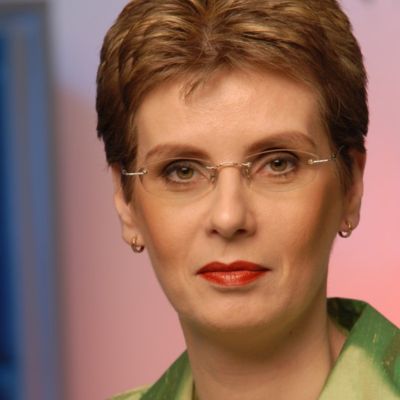For Immediate Release

SLAS Technology is pleased to announce the new Life Sciences and Society series, authored by SLAS Technology Associate Editor Kerstin Thurow, PhD (University of Rostock Center for Life Science Automation). The series explores the critical intersection where rapid scientific advancement meets societal impact. By exploring the social and ethical dimensions of life sciences, the series invites readers to critically reflect on how scientific discoveries shape our world and how society, in turn, shapes the course of life sciences.
The inaugural entries of the new series, “Life sciences and society – an alphabetical journey” and “Life sciences and artificial intelligence,” appear in Volume 34 of SLAS Technology. Each future volume will include an additional installment.
Thurow shared her inspiration for the series, its connection to scientific collaboration and a look at future themes.
Thurow: Throughout history, there are countless examples of the consequences scientific discoveries can have – Alfred Nobel is probably the most well-known. Today, the life sciences are a broad research discipline that affects people’s lives even more directly than many other discoveries. Engaging with these questions myself, while also drawing others’ attention to them, was motivation enough for me to launch the Life Sciences and Society series.
Thurow: Science and society are developing very fast today, and we all feel the resulting consequences directly. This development makes it essential to consider social and ethical questions from the very beginning. Failing to do so risks missing opportunities or losing public trust.
Thurow: In the past, people often spoke of the “ivory tower of science” as a symbol of research detaching from society. Today, science must be a collaborative and networked process. If researchers actively engage in networks, they can contribute to the development of knowledge and the solution of global challenges.
Thurow: I would like to raise readers' awareness of this topic. In my series, I combine the term "life sciences“ with social areas that, at first glance, seem to have little connection with each other. This series should stimulate thought and invite critical reflection of the readers on the fact that science is much more than just discoveries.
Thurow: I have a whole series of additional topics planned. One of them will be "Life Sciences and Sustainability" – examining how life sciences can contribute to a more sustainable shaping of our future. Another topic is "Life Sciences and Democracy:" how much do people really have to say in decisions about genetic engineering, vaccination or the use of biobanks?
*****
SLAS (Society for Laboratory Automation and Screening) is an international professional society of academic, industry and government life sciences researchers and the developers and providers of laboratory automation technology. The SLAS mission is to bring together researchers in academia, industry and government to advance life sciences discovery and technology via education, knowledge exchange and global community building.
SLAS Technology reveals how scientists adapt technological advancements for life sciences exploration and experimentation in biomedical research and development. The journal emphasizes scientific and technical advances that enable and improve:
SLAS Technology: Translating Life Sciences Innovation, 2024 Impact Factor 3.7. Editor-in-Chief Edward Kai-Hua Chow, PhD, KYAN Technologies, Los Angeles, CA (USA).
###
Jill Hronek
Director of Marketing Communications
Telephone: +1.630.256.7527, ext. 103
E-Mail: jhronek@slas.org